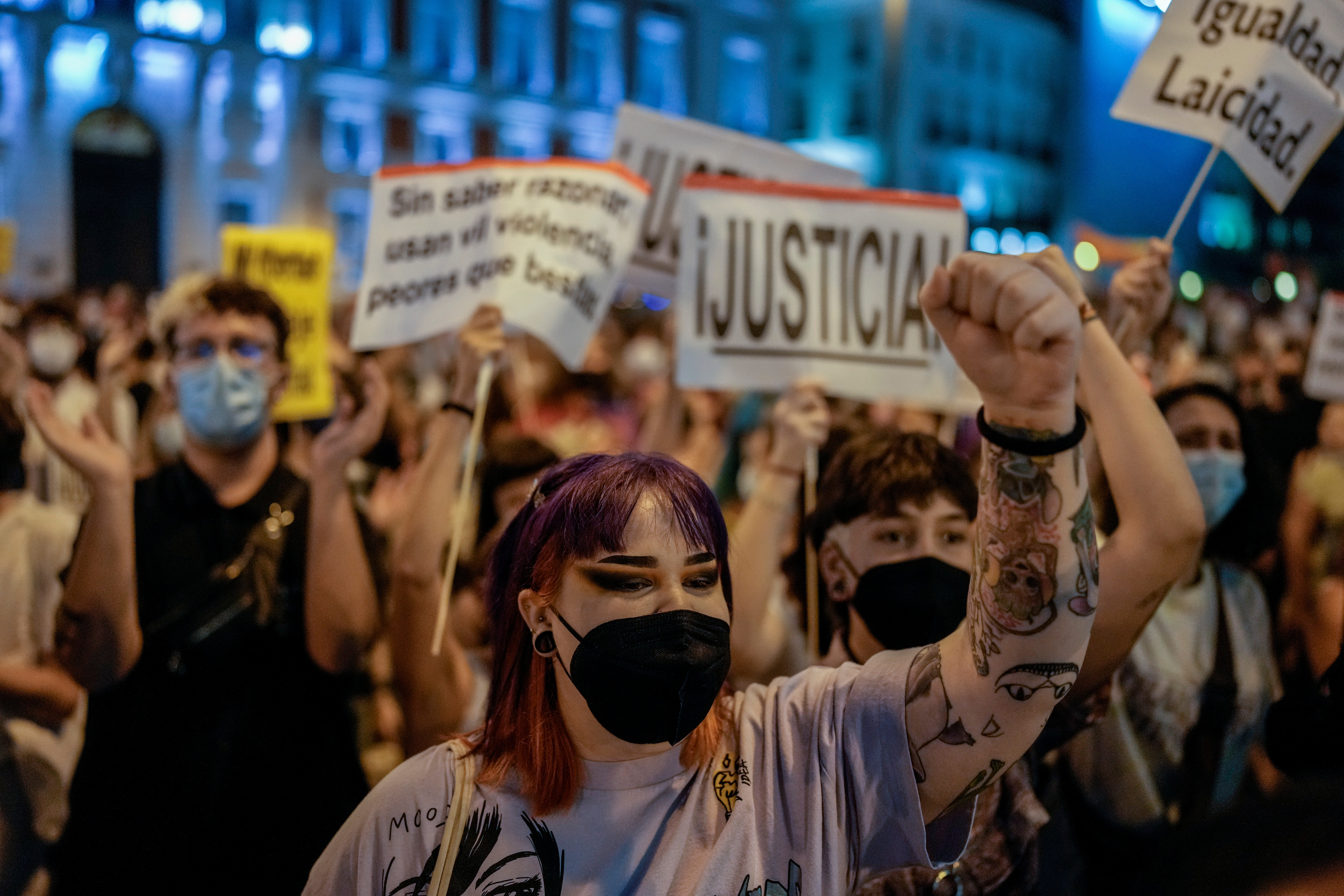Spaniards protest hate crime amid twist in high-profile case
Protests in Spain to denounce a rise in hate crimes against LGBTQ people have gone ahead after a high-profile case that had grabbed attention across the country took an unexpected twist

Your support helps us to tell the story
From reproductive rights to climate change to Big Tech, The Independent is on the ground when the story is developing. Whether it's investigating the financials of Elon Musk's pro-Trump PAC or producing our latest documentary, 'The A Word', which shines a light on the American women fighting for reproductive rights, we know how important it is to parse out the facts from the messaging.
At such a critical moment in US history, we need reporters on the ground. Your donation allows us to keep sending journalists to speak to both sides of the story.
The Independent is trusted by Americans across the entire political spectrum. And unlike many other quality news outlets, we choose not to lock Americans out of our reporting and analysis with paywalls. We believe quality journalism should be available to everyone, paid for by those who can afford it.
Your support makes all the difference.Protests in Spain to denounce a rise in hate crimes against LGBTQ people went ahead on Wednesday after a high-profile case that had grabbed attention across the country took an unexpected twist.
Thousands gathered in Madrid and Barcelona three days after a young man told police that he had been brutally assaulted by a group of hooded assailants in the Spanish capital. He said that his unidentified aggressors used a knife to slash his lip and carve a homophobic slur into one of his buttocks.
On Wednesday, however, the Interior Ministry said that the young man had amended his statement to investigators to say that he had consented to the wounds.
The police investigation remained open.
Despite the turn in the case, the protests went ahead as planned. Participants said it was necessary to denounce the overall rise in reported cases of hate crimes as reflected in official statistics.
“We are tired of being attacked at any given moment.” 58-year-old Rafaela Corrales said in Madrid. “I don’t know if this last attack in Madrid is true or not. I don’t really care, since we suffer all types of violence all year long.”
One of the groups organizing the protest in the capital, Movimiento Marika Madrid, said that the change of the young man’s story did not take anything away from their cause.
“Because we have also seen in recent days attacks in Toledo, in Melilla, in Castellón and in Vitoria,” the group said on social media. “Our lives are at stake.”
In July, the death of a 24-year-old man in an attack prompted widespread condemnation after friends of the victim claimed he was targeted and beaten to death for being gay. There has also been a steady trickle of victims of hate crimes speaking out in recent weeks.
Hate crimes, including those against LGBTQ people, increased 9% in the first six months of the year compared to 2019, the year before the pandemic confinement and curfews, according to Spain’s interior ministry.
Activist groups claim that official statistics capture only a fraction of the problem because many incidents aren’t reported.
The alleged attack in Madrid was quickly taken up by Spain's leading political parties.
Prime Minister Pedro Sánchez, a Socialist, said he was calling a meeting of his government's committee on hate crimes for Friday over which he would personally preside.
“Not one step backward. We are going to continue advancing in tolerance, respect and diversity,” Sánchez said Wednesday. “In Spain there is no place for hate.”
However, Rocio Monasterio, a senior member of the far-right Vox party, used the change of story by the young man to criticize what she called the lack of presumption of innocence in Madrid’s regional law against alleged hate crimes.
___
Joseph Wilson reported from Barcelona. Renata Brito contributed to this report from Barcelona.